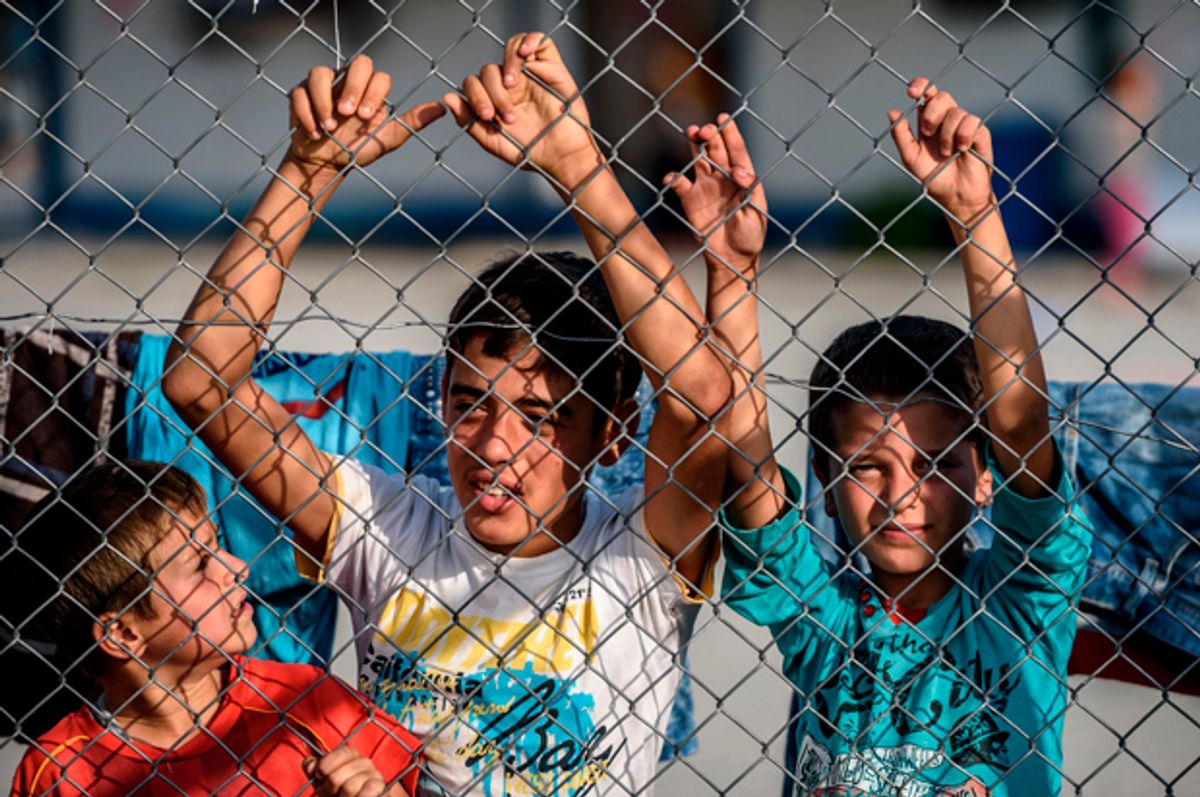Syrian child refugees are making clothes for British companies in Turkish sweatshops, according to an investigation by the BBC.
The refugees work in harsh conditions and often make just over $1.25 per hour, in violation of Turkish minimum wage laws.
"If anything happens to a Syrian, they will throw him away like a piece of cloth," one refugee told reporters from the BBC program "Panorama."
A 15-year-old refugee said he worked more than 12 hours a day ironing clothes, which were then shipped to the U.K.
Some of the refugees are exposed to hazardous chemicals that are sprayed to bleach the jeans, yet do not have face masks to protect them.
Middlemen reportedly employ the refugees and pay them in cash on the street.
The BBC reported that the clothing made by child refugees is going to the retail company Marks & Spencer and the online fashion dealer ASOS.
Adult refugees are also working in the sweatshops, making jeans for the companies Zara and Mango.
The BBC captured photos and video of the brands' logos. These are featured in the new "Panorama" documentary "Undercover: The Refugees Who Make Our Clothes."
The brands said they do not tolerate the exploitation of children in their supply chains. Marks & Spencer said it inspected and did not find any child refugees. Yet the BBC said it found seven Syrians working in one of the main factories supplying Marks & Spencer.
ASOS inspected and found 11 Syrian adults and three Syrian children under age 16 working on clothing in a factory it uses.
In a factory in Istanbul, the BBC's Panorama found adult Syrian refugees working alongside Turkish children as young as 10.
The world is enduring the worst refugee crisis since World War II. Syria has been particularly hard hit: More than half of its population has been displaced in a five-year war — a conflict fueled by Turkey, Iran, Saudi Arabia, the U.S., Russia, Qatar and more.
Of the 4.8 million Syrian refugees registered with the U.N., 2.7 million are living in Turkey. Many do not have work permits and face grueling poverty.
The U.S. has only pledged to take 10,000 Syrian refugees out of the nearly 5 million, despite playing a large role in the war, spending many billions of dollars arming and training rebels. An investigation found that 63 percent of Americans think the U.S. government should do more to help refugees.
Refugees have often been subjected to extreme forms of exploitation. Traffickers have taken advantage of their desperation by even selling Syrian refugees' organs for large sums of money.
A black market for refugees' organs has long flourished in the Middle East. Lebanese smugglers told Der Spiegel in 2013 that because of the enormous refugee crisis there are “more sellers than buyers.”



Shares